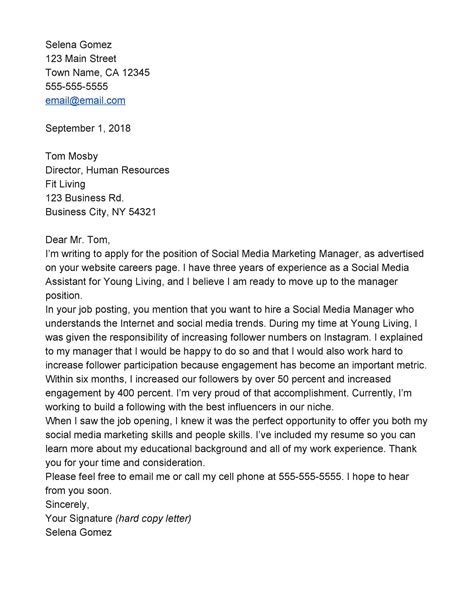Essential Elements For A Job Cover Letter

When applying for a job, your cover letter is often the first impression you make on a potential employer. Therefore, it is important to ensure that your cover letter is well-written and effectively showcases your skills and qualifications. Below are the essential elements that every job cover letter should include.
1. Contact Information
Your cover letter should start with your contact information, including your full name, address, phone number, and email address. This information should be placed at the top of your cover letter and should be easy to read.
2. Employer Contact Information
Include the employer’s contact information, including the name of the hiring manager, the company’s name, and the address of the company. If you are unsure of the hiring manager’s name, do some research to find out who you should address your cover letter to.
3. Introduction
Your introduction should grab the employer’s attention and explain why you are interested in the job. You can mention how you found out about the job and why you believe you are a good fit for the position. Make sure to personalize your introduction and avoid using generic phrases.
4. Body Paragraphs
The body paragraphs of your cover letter should highlight your skills, qualifications, and experiences that make you a strong candidate for the job. Use specific examples and accomplishments to demonstrate your abilities and how they align with the job requirements. Make sure to tailor your cover letter to the specific job you are applying for.
5. Closing Paragraph
Your closing paragraph should thank the employer for their time and consideration. You can also mention that you are looking forward to hearing back from them and that you are available for an interview. End your cover letter with a professional closing, such as “Sincerely” or “Best regards.”
6. Signature
Include your signature at the bottom of your cover letter. If you are emailing your cover letter, you can use a digital signature or simply type your name.
7. Proofreading
Before submitting your cover letter, make sure to proofread it carefully for any spelling or grammar errors. You can also ask someone else to review your cover letter to ensure that it is error-free.
8. Formatting
Make sure that your cover letter is well-formatted and easy to read. Use a professional font and make sure that the spacing and margins are consistent throughout the document.
9. Follow-Up
If you haven’t heard back from the employer within a week or two, it is appropriate to follow up with a polite email or phone call. This shows that you are still interested in the job and can help keep you on the employer’s radar.
10. Customization
Customizing your cover letter for each job you apply for can greatly increase your chances of getting an interview. Make sure to research the company and tailor your cover letter to the specific job requirements and company culture.
Conclusion
Writing a strong cover letter is essential for getting noticed by potential employers. By including the essential elements outlined above, you can ensure that your cover letter effectively showcases your skills and qualifications and sets you apart from other applicants.
FAQs
What should I include in my cover letter?
Your cover letter should include your contact information, the employer’s contact information, an introduction, body paragraphs highlighting your skills and qualifications, a closing paragraph, and your signature.
How do I address my cover letter?
If possible, address your cover letter to the hiring manager by name. If you are unsure of the hiring manager’s name, do some research to find out who you should address your cover letter to.
How long should my cover letter be?
Your cover letter should be concise and to the point. Aim for no more than one page.
Should I customize my cover letter for each job I apply for?
Yes, customizing your cover letter for each job you apply for can greatly increase your chances of getting an interview. Make sure to research the company and tailor your cover letter to the specific job requirements and company culture.
What should I do if I haven’t heard back from the employer?
If you haven’t heard back from the employer within a week or two, it is appropriate to follow up with a polite email or phone call. This shows that you are still interested in the job and can help keep you on the employer’s radar.
